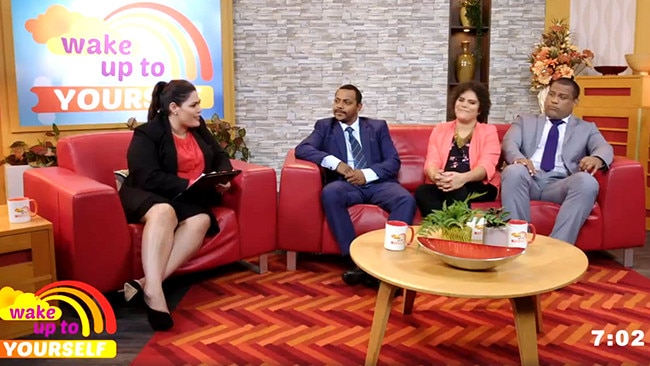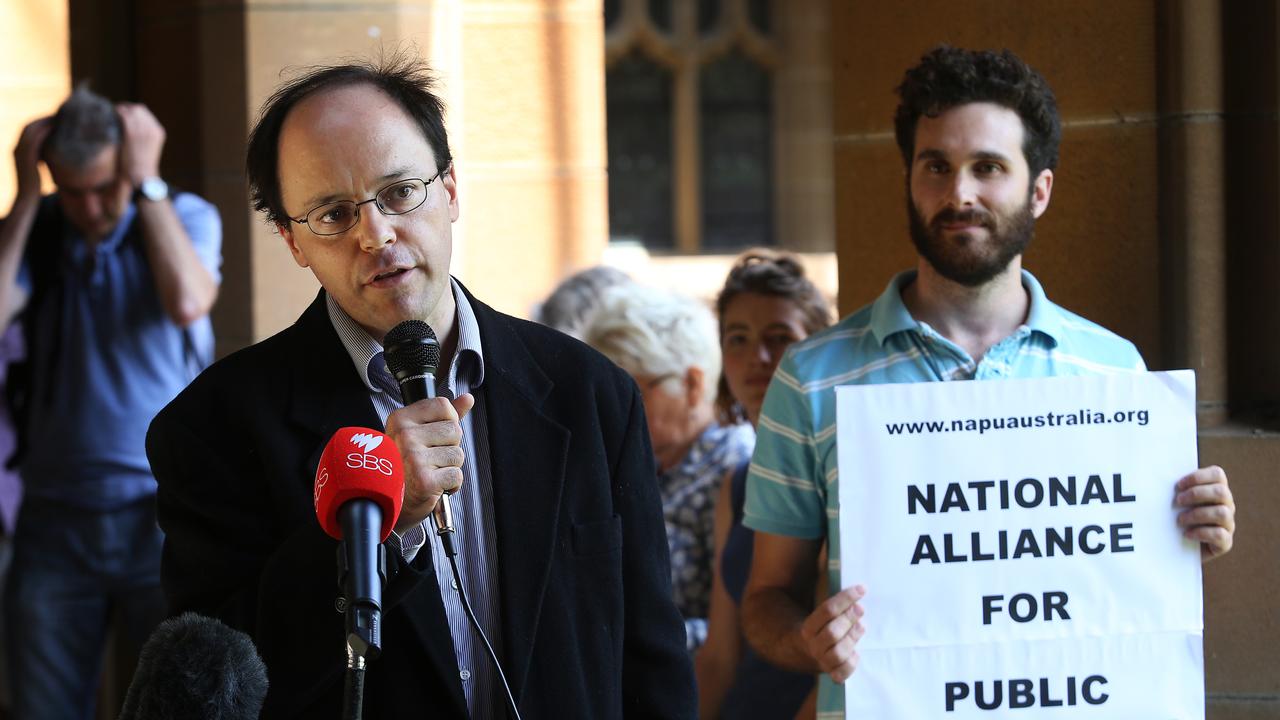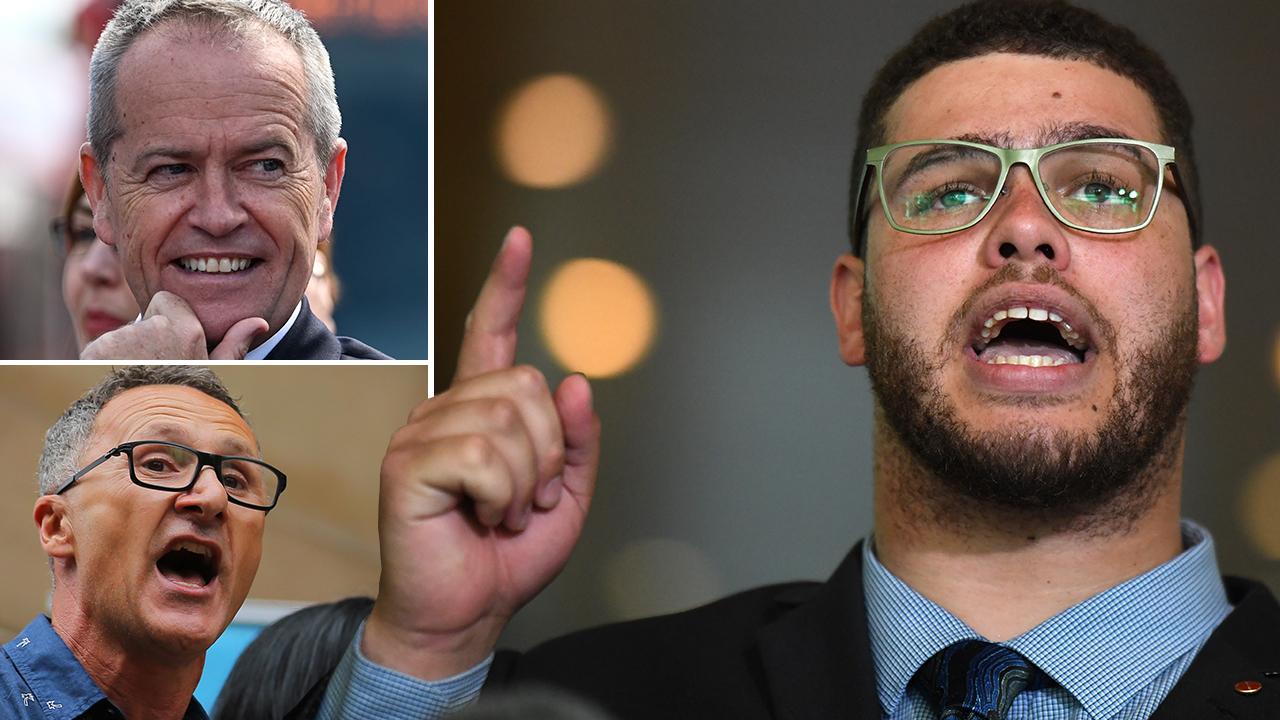
How is this for a comedy skit? Two light-skinned, inner-city, tertiary-educated women who identify as Aboriginal are part of an ABC panel that discusses indigenous issues. They are joined by the third member, who, unlike his co-panellists, is dark-skinned, weather-beaten, and has travelled from the remote indigenous community where he lives.
“You’re not supposed to be here,” say the two women in unison, glaring at him. “This is an indigenous-only panel!”
Hilarious, right? Not so. Indigenous playwright and comedian Nakkiah Lui would find it most offensive.
“Being questioned about my authenticity is inherently racist,” Lui said in 2015. She was responding to a critical review of her play Kill the Messenger, which questioned her ability to write from the perspective of a working-class indigenous family. “I am Aboriginal, there is no debate there,” said Lui, who has a middle-class suburban upbringing, as well as a law degree.
This week an ABC indigenous Facebook Page featured a segment starring Lui, a co-writer and star of the ABC series Black Comedy, as the host of an all-indigenous panel on the ‘Wake Up To Yourself’ show. Parodying a breakfast television program, the panel insouciantly and repeatedly expressed the view that “white people are c...s”. This was in response to an all-white Sunrise panel last week that discussed removing vulnerable indigenous children from their families and placing them in non-indigenous households.
Undoubtedly, the Sunrise panel was unrepresentative. It aired factual errors, used out of context footage, and made hasty generalisations for which it was rightly criticised. Yet the response by Lui and her fellow actors was disproportionate and vulgar. A better skit writer could have easily lampooned the Sunrise panel with subtlety and nuance. Instead, this taxpayer-funded show featured cheap shots in the form of racist abuse. In doing so, the actors came across as the smug teacher’s pets of White Privilege 101, complemented by the whiny self-indulgence of perpetual victimhood.
If you think that is an over-the- top description, consider this. “My main concern in Indigenous Affairs atm is our use of the saying “White Dogs”, Lui tweeted in 2016. “Dogs are innocent, sweet and loyal. Let’s not insult dogs.”
My main concern in Indigenous Affairs atm is our use of the saying 'White Dogs'. Dogs are innocent, sweet and loyal. Let's not insult dogs.
— Nakkiah Lui (@nakkiahlui) May 9, 2016
This was the same woman who the year before gave an impassioned speech to the NSW Reconciliation Council on the subject of racism. “The Urban Dictionary defines ‘I’m Not a Racist But’ as…[a] disclaimer that allows the speaker to say whatever they like regardless of how racist it actually is,” she said. Sound familiar?
In this speech she condemned the “white people” who “spout hateful vitriol on trains and buses at anyone who isn’t white.” What about non-white people who racially abuse others? “If you’ve seen the videos on the internet, it’s always white people being racist, no-one else,” she claimed. What, white people like this Aboriginal woman who was filmed just a year before this speech racially abusing an Asian lady on a Perth train?
“I do enjoy the comforts of insulin when suffering from my colonisation induced diabetes,” she tweeted in 2010.
@Miss_NattyB I actually live in a humpee. But yes, I do enjoy the comforts of insulin when suffering from my colonisation induced diabetes
— Nakkiah Lui (@nakkiahlui) April 9, 2010
Fortunately for Lui, colonisation has not always been detrimental. In 2003 she was awarded a $65,000 Australian Indigenous Scholarship to study in Canada. In 2012 she received ‘The Dreaming Award’ from the Aboriginal and Torres Strait Island Arts Board of the Australia Council to the value of $20,000. Now she has her own TV show, a platform funded by ‘white dogs’ for her to indulge in puerile race-baiting. Could Lui be the new Yassmin Abdel-Magied? The announcement for the winner of Liberty Victoria’s 2019 ‘Voltaire Award’ is another year away, but I’m calling it now.
Like many progressives, Lui subscribes to the romantic notion that, historically, indigenous Australia, was a utopia. Speaking on ABC’s Q&A in 2016 on the subject of entrenched domestic violence in indigenous communities, Lui warned against stigmatising.
“And the reason I say we should not talk in big brushstrokes is that when we start demonising Aboriginal men, what we’re also doing is demonising Aboriginal women.” (2:05)
One might ask Lui why, in her opinion, labels such as “white dogs” and “white c...s” do not constitute a big brushstroke or demonising. What she said later was breathtaking. “This has been an issue in the Aboriginal community for decades,” she said. “Violence against Aboriginal women has been happening … from basically colonisation.” (3:30), implying that pre-colonisation indigenous society was a Kumbaya collective.
As detailed by the magazine Quadrant in 2013, early British and French explorers noted the endemic violence of Aboriginal men against indigenous women. “They are in all respects treated with savage barbarity,” observed British marine officer Watkin Tench, who had arrived on the First Fleet. “Condemned not only to carry the children, but all other burthens, they meet in return for submission only with blows, kicks and every other mark of brutality.”
In 1995, a paleopathological study of the bones of around 4,500 indigenous skeletons — many of them predating European arrival — revealed a highly disproportionate number of women’s skulls were fractured.
“Few women will be found, upon examination, to be free from frightful scars upon the head, or the marks of spear wounds about the body,” wrote nineteenth-century British explorer Edward John Eyre. To pretend that violent misogyny in indigenous communities is a recent phenomenon resulting from colonisation is to shield its perpetrators.
In 2016, the late artist Bill Leak strikingly highlighted the dysfunctional state of indigenous families with a controversial cartoon featuring an Aboriginal man who did not know the name of his delinquent adolescent son. This resulted in mass outrage, and a complaint against Leak under section 18C of the Racial Discrimination Act, which makes it unlawful to offend, insult, humiliate or intimidate people based on their race, colour, or national or ethnic background.
Lui’s response was simplistic and hackneyed. Leak had “made money from hate speech” she claimed, describing the cartoon as “absolutely vile”.
“Bill Leak made money off hate speech & a vulnerable community†@nakkiahlui on #IndigenousDads & #18C #TheDrum pic.twitter.com/1ROx73P9PP
— ABC The Drum (@ABCthedrum) August 8, 2016
But according to then WA police commissioner Karl O’Callaghan the carton was an accurate depiction of what officers saw daily in indigenous communities.
Not surprisingly, Lui opposes any amendment of 18C. Based on her understanding of it, however, she urgently needs to brush up on the legislation before offering further comment. “That’s what 18C is there…for, it’s to protect those who are vulnerable,” said Lui during her Q&A appearance. “It’s to protect — it’s not just the Aboriginal community ... it is women, it is people who are trans, it is people with different sexes…”
No-one on the panel, perhaps out of kindness, pointed out to the law graduate that 18C says nothing about gender discrimination.
Incidentally, you will not be surprised to learn Race Discrimination Commissioner Tim Soutphommasane tweeted his disapproval of the Sunrise segment.
We would be better served by having more informed and responsible commentary on this issue — that includes having Indigenous voices in the mix https://t.co/7rpjwvzqAi
— Tim Soutphommasane (@timsout) March 13, 2018
“We would be better served by having more informed and responsible commentary on this issue,” he stated.
However, his Twitter account says nothing in reference to the “white c…s” segment. Only last month he criticised the television show My Kitchen Rules, which had featured contestants joking about domestic pets being on the menu of a traditional Vietnamese menu.
“Disappointing to see a racist joke on prime time TV — this stuff is not acceptable.” he said. “Let’s not give racism any encouragement or licence.”
One could argue his apparent failure to condemn another form of televised racism does exactly that.
“I always get annoyed at how people don’t question their own racism,” tweeted Lui in 2013.
I always get annoyed at how people don't question their own racism. They don't critically engage with their own white-centric privileged pov
— Nakkiah Lui (@nakkiahlui) July 16, 2013
What an excellent point. To paraphrase the title of her fictional breakfast television show, it is high time she woke up to herself.





To join the conversation, please log in. Don't have an account? Register
Join the conversation, you are commenting as Logout